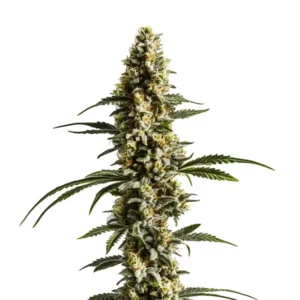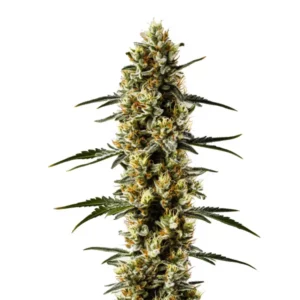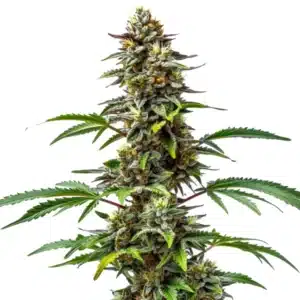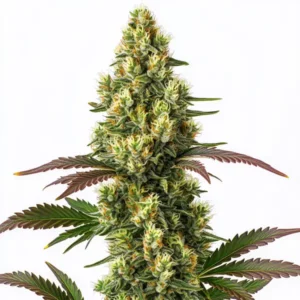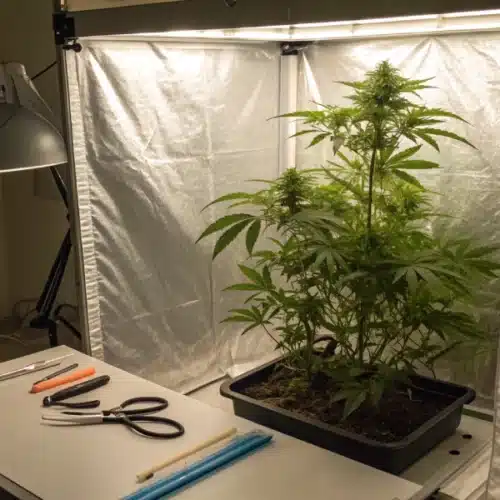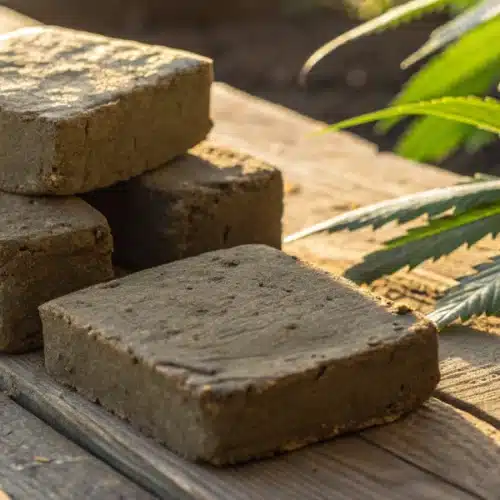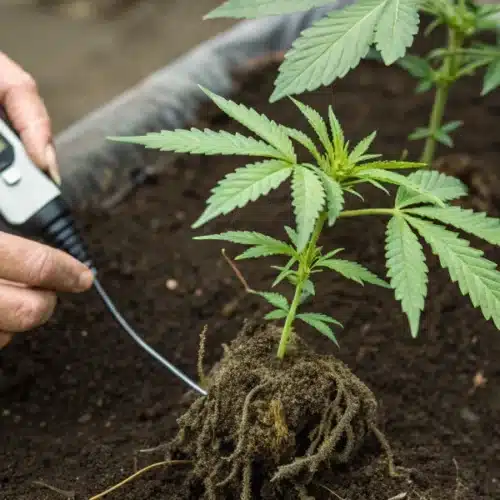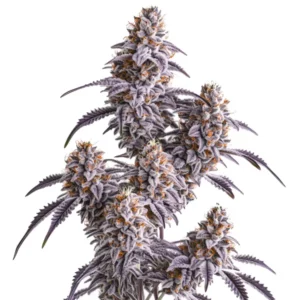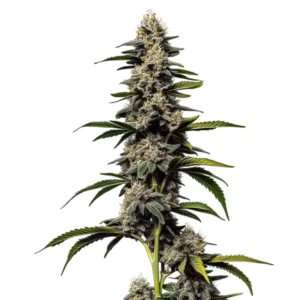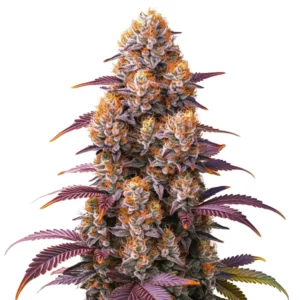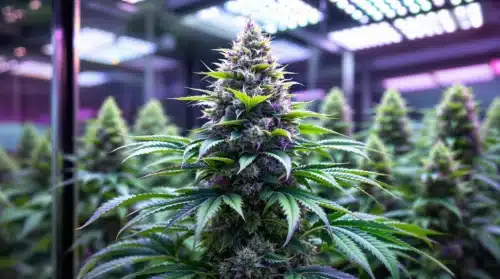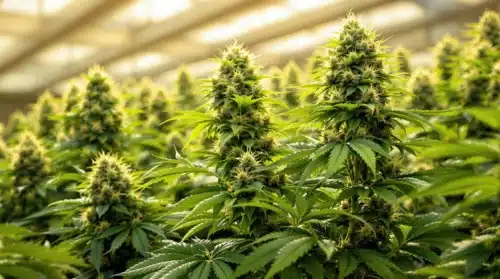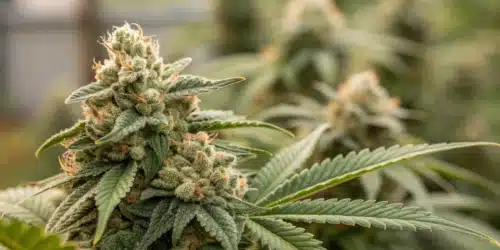Introduction to DEPS Weed
The Basics of DEPS Weed
DEPS, an acronym that stands out in the cannabis cultivation community, often prompts the question, “What is DEPS weed?” among growers new to this method. It refers to a sophisticated hydroponic setup known as Deep Water Culture (DWC). This innovative method submerges the roots of cannabis plants in nutrient-rich water, optimizing their growth conditions and significantly impacting their development. The essence of DEPS lies in its ability to provide unmatched oxygen and nutrient delivery to the plant roots, fostering a faster growth rate and yielding superior quality cannabis.
The Rise of DEPS in Cannabis Culture
The rise of DEPS in cannabis culture reflects a revolutionary shift in how growers approach plant care and production, especially when comparing indoor vs outdoor weed cultivation methods. DEPS technology is reshaping these traditional approaches. This method has not only proven to enhance the efficiency and outcomes of cannabis growth but also integrates seamlessly with the ongoing green revolution within the industry. By minimizing waste and reducing the need for soil and pesticides, DEPS is setting new standards for sustainability in cannabis cultivation.
Promos & Deals
The Science Behind DEPS Weed
The science behind DEPS (Deep Water Culture Systems) weed unveils why this method has become a revolutionary approach in cannabis cultivation. DEPS weed meaning often confuses newcomers, as they wonder what does DEPS mean in weed terms. It’s simply a term describing cannabis grown using this innovative hydroponic system. By diving deeper into the mechanics of DEPS, we can appreciate its efficiency and the superior quality of cannabis it produces.
Defining DEPS: Deep Water Culture Systems
At its core, DEPS leverages the principles of hydroponics, where plants are grown in water instead of soil, to optimize the delivery of nutrients and oxygen directly to the roots. In a typical DEPS setup, the roots of cannabis plants are suspended in a nutrient-rich solution, constantly oxygenated by an air pump and air stone. This ensures that the roots have access to oxygen 24/7, a critical factor for healthy plant growth.
Optimizing Plant Growth
The DEPS method accelerates cannabis growth by providing an environment where roots can absorb nutrients and oxygen more efficiently than in soil. In traditional cultivation methods, the roots expend significant energy growing through the soil to find these essential resources. DEPS weed eliminates this need, allowing plants to focus their energy on vegetative growth and flowering, leading to faster growth cycles and increased yield. This efficiency is why many growers now prioritize understanding DEPS weed meaning when optimizing their setups.
Here’s how oxygenation impacts plant growth
Oxygenation is a pivotal aspect of the DEPS system. Roots require oxygen for respiration, a process that converts sugars into energy for growth and nutrient absorption. By providing a highly oxygenated environment, DEPS encourages vigorous root growth and health, which directly translates to healthier plants and more abundant harvests.
How DEPS Weed Affects Cannabis Growth
Enhanced Nutrient Uptake
The DEPS system facilitates a more efficient uptake of nutrients by maintaining an optimal nutrient solution composition. Growers have precise control over the nutrient mix, adjusting it to meet the specific needs of the cannabis plants at various growth stages. This level of control is challenging to achieve with soil-based methods and allows for tailored nutrient programs that enhance the growth and potency of the cannabis.
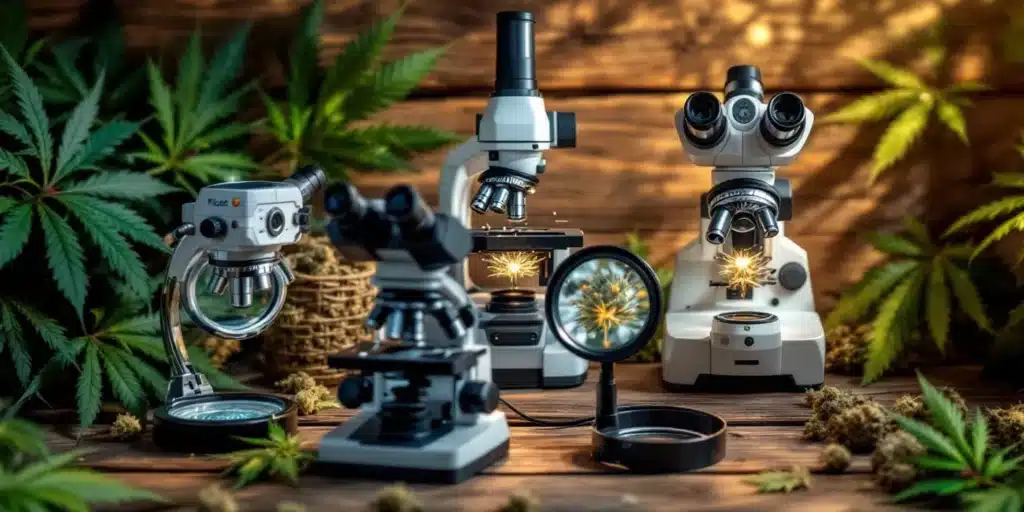
Reduced Stress on Plants
Cannabis plants grown in DEPS systems experience less stress compared to those grown in soil. Stress factors such as irregular watering, nutrient imbalances, and pest infestations are minimized in a controlled hydroponic environment. Less stress on the plants leads to stronger, more resilient cannabis that can produce higher levels of cannabinoids and terpenes.
Implications for Cannabis Quality and Yield
The science behind DEPS not only supports accelerated growth and higher yields but also contributes to the production of cannabis with enhanced qualities. The precise control over the growing environment allows for the cultivation of cannabis with specific cannabinoid and terpene profiles, catering to the preferences of medical and recreational users alike. The result is a consistently high-quality product that stands out in the cannabis market.
Sustainability and Resource Efficiency
DEPS is not just about improving growth rates and yields; it’s also an environmentally friendly approach to cannabis cultivation. The system’s efficiency in nutrient and water use significantly reduces waste, making DEPS a sustainable choice for the future of cannabis farming. By recirculating water and nutrients, DEPS weed minimizes the consumption of these resources, aligning with broader environmental sustainability goals.
The Benefits of DEPS Weed Cultivated Cannabis
Enhanced Growth Rates and Yields
The benefits of high DEPS weed cultivation include not only faster growth rates and increased yields but also superior quality and potency, making it a top choice for growers seeking high-performance cannabis. This hydroponic cultivation method immerses the roots of cannabis plants in a nutrient-rich oxygenated water solution, promoting faster root development and nutrient uptake compared to traditional soil cultivation. The result is not only a shorter vegetative phase but also a more abundant flowering period, allowing cultivators to achieve more harvest cycles per year. This efficiency is a game-changer for both commercial operations and home growers, optimizing the production process and maximizing output.
Superior Quality and Potency
DEPS cultivated cannabis is known for its superior quality and potency. The precise control over nutrients, pH levels, and oxygenation that DEPS allows ensures that each plant reaches its full genetic potential. Cannabis grown in DEPS systems often exhibits higher concentrations of cannabinoids and terpenes, leading to more potent and flavorful buds. This is particularly appealing to medicinal users who rely on specific cannabinoid profiles for therapeutic purposes, as well as recreational users seeking a premium experience. The controlled environment of DEPS also significantly reduces the risk of pests and diseases, contributing to the overall quality of the final product.
Environmental Advantages
Sustainability is at the forefront of the cannabis industry’s evolution, and DEPS cultivation aligns perfectly with this trend. DEPS systems use water more efficiently than traditional soil-based methods, recycling the nutrient solution and drastically reducing overall water consumption. This is crucial in regions where water scarcity is a concern. Moreover, by eliminating the need for soil, DEPS weed prevents soil degradation and reduces the dependence on chemical fertilizers and pesticides, further minimizing the ecological footprint of cannabis cultivation. The environmental benefits of DEPS not only contribute to a more sustainable industry but also appeal to environmentally conscious consumers.
Scalability and Flexibility
DEPS systems offer unparalleled scalability and flexibility for cannabis cultivation. Whether operating on a commercial scale or managing a small home garden, growers can easily adjust the size and complexity of their DEPS setup to meet their needs. This modularity allows for the efficient use of space and resources, making it possible to cultivate high-quality cannabis in a variety of settings, including urban environments and controlled indoor spaces. The ability to precisely control growing conditions also means that cultivators can experiment with different strains and techniques to consistently achieve the best results.
Economic Efficiency
The increased yield and quality of DEPS cultivated cannabis translate directly into economic benefits for growers. By maximizing the productivity of each cultivation cycle, growers can achieve a higher return on investment, offsetting the initial costs of setting up a DEPS weed system. Additionally, the reduced need for pest control and disease management further lowers operational expenses. For commercial cultivators, these savings can be significant, contributing to more competitive pricing and higher profit margins. For home growers, the economic efficiency of DEPS means more affordable access to high-quality cannabis.
DEPS Weed vs. Traditional Cultivation Methods
A Comparison of Growth Techniques
The contrast between DEPS (Deep Water Culture Systems) and traditional soil-based cultivation methods represents a significant shift in cannabis farming practices, leaving many to wonder, “What are DEPS systems, and why are they so effective for cannabis cultivation? While traditional methods have served as the backbone of agriculture for millennia, DEPS introduces a modern approach that leverages advanced hydroponic technology to optimize plant growth, health, and yield.
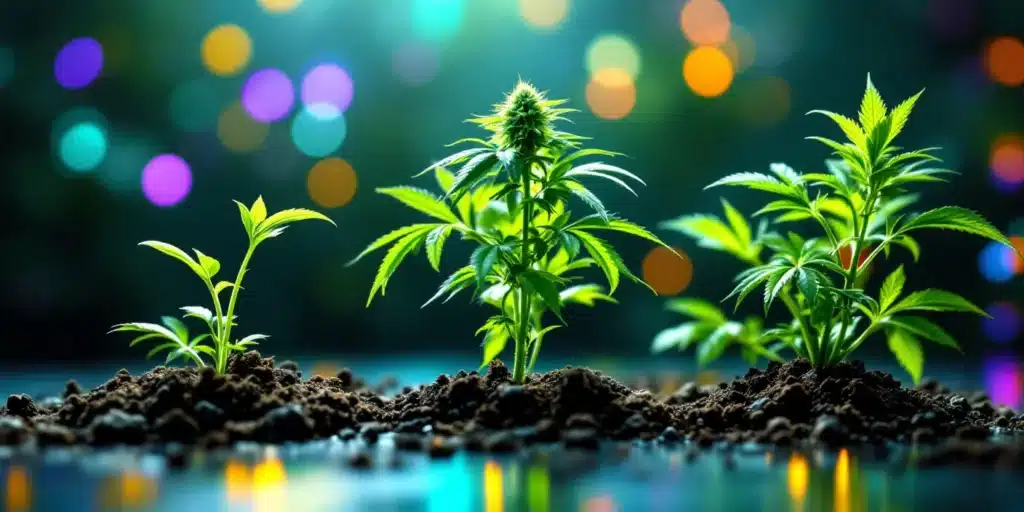
Efficiency and Control
DEPS systems offer an unparalleled level of efficiency and control over the cannabis cultivation environment. By providing roots direct access to oxygenated nutrient solutions, DEPS maximizes nutrient uptake and allows for precise control over the plant’s growth conditions. This direct feeding method contrasts sharply with traditional soil cultivation, where nutrient absorption can be less efficient and more susceptible to variables such as soil quality, moisture levels, and pH fluctuations.
Growth Speed and Yield
One of the most notable advantages of DEPS over traditional methods is the significantly faster growth rate and increased yield. Cannabis plants in DEPS setups typically mature up to 20-25% faster due to optimized conditions for root oxygenation and nutrient uptake. This accelerated growth rate allows for more harvest cycles within the same period, significantly boosting production efficiency and yield. In contrast, traditional soil-based methods often require more time for plant development, with yields constrained by the limitations and variability of soil conditions.
Water Usage and Sustainability
Sustainability is a critical concern in modern agriculture, and here DEPS shines by utilizing water far more efficiently than traditional cultivation methods. DEPS weed systems recirculate water and nutrients, drastically reducing consumption and waste. Traditional soil cultivation, on the other hand, involves significant water runoff and evaporation, leading to higher water usage and potential for nutrient leaching into the environment. The efficient water use in DEPS not only conserves this precious resource but also aligns with environmentally conscious farming practices.
Pest and Disease Management
The closed, soilless environment of DEPS systems significantly reduces the risk of pests and diseases common in traditional cultivation methods. Soil acts as a habitat for various pests and pathogens that can harm cannabis plants. In contrast, the controlled environment of DEPS minimizes these risks, leading to healthier plants and reducing the need for chemical pesticides, which benefits both the environment and the end consumer.
Flexibility and Scalability
DEPS systems offer a high degree of flexibility and scalability not easily achieved with traditional soil-based methods. Growers can easily expand or modify their DEPS setups to accommodate increased production or experiment with different strains. Traditional cultivation, while scalable, often involves considerable labor and resource investment to expand, with fixed limitations based on land availability and soil quality.
Economic Considerations
While DEPS systems may require a higher initial investment in equipment and setup compared to traditional soil cultivation, the long-term benefits often justify the cost. The increased efficiency, higher yields, and reduced pest and disease management expenses can lead to greater profitability over time. Traditional methods, while lower in initial cost, may incur higher long-term expenses due to the factors mentioned above, along with the potential for crop loss due to environmental and soil-related challenges.
Setting Up Your Own DEPS Weed Garden
Essential Equipment and Supplies
Starting a DEPS cannabis garden requires specific equipment, including a water reservoir, air pump, air stones, net pots, and suitable grow lights. Additionally, a balanced nutrient solution tailored to cannabis plants is critical for ensuring optimal growth.
Step-by-Step Guide to Getting Started
Setting up a DEPS system involves assembling your equipment, preparing the nutrient solution, and selecting the right cannabis strains for hydroponic growth. It’s essential to maintain proper water temperature, pH levels, and nutrient concentrations to ensure your plants thrive.
Best Practices for DEPS Weed Cultivation
Maintaining Optimal Conditions
Consistent monitoring and adjustment of the nutrient solution’s pH and electrical conductivity (EC) are crucial in a DEPS Weed setup. Keeping the water temperature within the ideal range of 65-70°F (18-21°C) is also essential for promoting healthy root development.
Maintaining Optimal Conditions
Monitoring and Adjusting Nutrient Solutions
The lifeblood of DEPS cultivation is its nutrient solution. Regular monitoring and adjusting of this solution ensure your cannabis plants receive the right balance of nutrients. Maintain an EC (Electrical Conductivity) level tailored to the growth stage of your cannabis plants, gradually increasing it as they mature from vegetative to flowering stages. Keeping a close eye on pH levels, ideally between 5.5 and 6.5, is also critical, as it affects the plant’s ability to absorb nutrients.
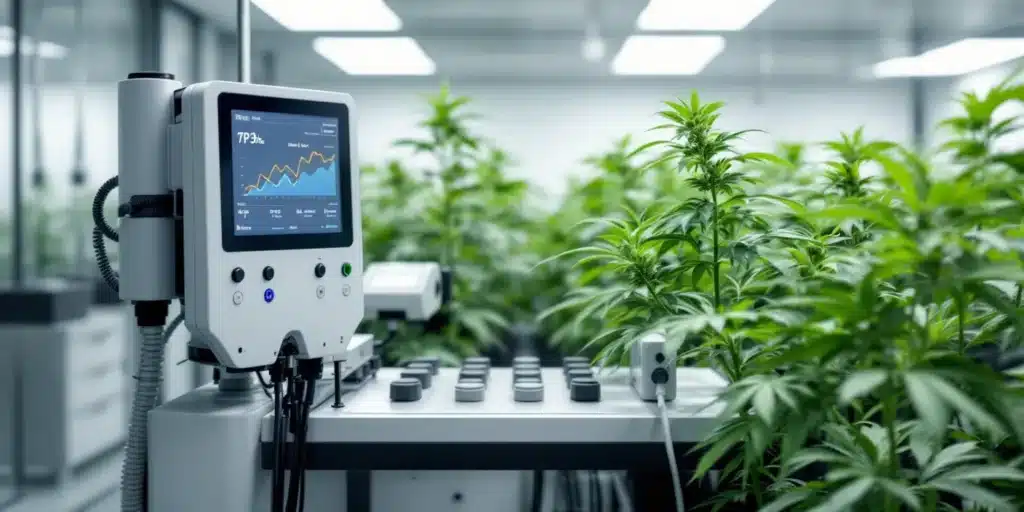
Ensuring Adequate Oxygenation
Root oxygenation is pivotal in DEPS systems. Use air stones and powerful air pumps to saturate the nutrient solution with oxygen. This promotes healthy root growth and prevents anaerobic conditions that could lead to root diseases.
Temperature and Humidity Control
Optimal temperature and humidity levels are vital for DEPS cultivation. Keep your grow room or area at a steady temperature of 68-72°F (20-22°C) and maintain humidity levels appropriate for each stage of growth—higher for seedlings and clones, and lower as plants mature. These conditions prevent stress and bolster plant health, leading to more robust growth and higher yields.
Optimal Lighting for Light DEPS: Ensuring Your Cannabis Plants Thrive
Cannabis plants in a DEPS setup thrive under the right light conditions. Choose high-quality LED or HID lights that cover the full spectrum needed for both vegetative growth and flowering. Ensure your plants receive adequate light without overheating them, adjusting the height of the lights as the plants grow.
Common Challenges and Solutions
Preventing Root Rot
Root rot poses a significant threat to DEPS systems. Prevent it by maintaining clean system components, changing the nutrient solution regularly, and ensuring proper oxygenation. Adding beneficial microorganisms can also help protect roots from pathogens.
Managing Algae Growth
Algae thrive in nutrient-rich, water-based environments, potentially choking out your cannabis plants. Combat algae by covering exposed surfaces that come into contact with light, thereby limiting its ability to photosynthesize and grow. Regular system cleaning and maintenance are also effective in controlling algae buildup.
Nutrient Imbalances and Deficiencies
Regular monitoring allows for the early detection and correction of nutrient imbalances or deficiencies. Tailor your nutrient solutions to the specific needs of your cannabis plants, adjusting based on observed growth and plant health. Utilizing a balanced, cannabis-specific nutrient formula can mitigate many common nutrient-related issues.
Continual Learning and Adaptation
Record Keeping
Document every aspect of your DEPS cultivation process, including nutrient EC/pH levels, temperature, humidity, lighting schedules, and plant growth observations. This information is invaluable for troubleshooting, optimizing future grows, and achieving consistent results.
Stay Informed
The field of cannabis cultivation is rapidly evolving, with continual advancements in technology and methodology. Stay informed about the latest trends, tools, and techniques in DEPS cultivation by engaging with online forums, attending workshops, and reading up-to-date literature on the subject.
DEPS Weed Strains: What Works Best?
Deep Water Culture (DEPS) systems have revolutionized cannabis cultivation, offering growers a method to produce higher yields and superior quality buds. However, success in DEPS cultivation also depends on choosing the right strains. Certain cannabis strains are better suited to hydroponic setups, responding well to the constant flow of oxygenated, nutrient-rich water. Here are five top-performing strains in DEPS systems, each known for its unique characteristics and cultivation benefits.
1. Blue Dream
Characteristics
- Genetics: Hybrid (Sativa-dominant)
- THC Content: High
- Grow Difficulty: Moderate
Why It Works Well in DEPS:
Blue Dream is favored by DEPS cultivators for its robust growth and high resilience to mold and pests. This strain exhibits vigorous vegetative growth, allowing for a plentiful yield. Its sativa dominance ensures a tall plant, so height management is essential in indoor setups.
Flavors and Effects:
Blue Dream is renowned for its sweet berry aroma and uplifting, euphoric effects. It offers a balanced high that stimulates creativity while also providing relaxation, making it a popular choice for both recreational and medicinal users.
2. Northern Lights
Characteristics
- Genetics: Indica
- THC Content: High
- Grow Difficulty: Easy
Why It Works Well in DEPS:
Northern Lights is a hardy indica strain that thrives in DEPS due to its compact size and fast flowering time. It’s an excellent choice for those new to hydroponics, as it’s less susceptible to common mistakes and fluctuations in the nutrient solution.
Flavors and Effects:
Known for its spicy, sweet aroma, Northern Lights delivers a deeply relaxing and sedative effect. It’s often used to relieve stress, pain, and insomnia, making it a highly sought-after strain for medicinal purposes.
3. Gorilla Glue #4 (GG4)
Characteristics
- Genetics: Hybrid (Indica-dominant)
- THC Content: Very High
- Grow Difficulty: Moderate
Why It Works Well in DEPS:
Gorilla Glue #4 is prized in DEPS systems for its explosive growth and exceptional resin production. This strain adapts well to hydroponic environments, responding with dense, sticky buds that are rich in THC.
Flavors and Effects:
GG4 features a pungent, earthy aroma with hints of pine and chocolate. Its effects are potent, delivering a heavy-handed euphoria and relaxation, perfect for managing pain, stress, and insomnia.
4. Super Silver Haze
Characteristics
- Genetics: Sativa
- THC Content: High
- Grow Difficulty: Moderate to High
Why It Works Well in DEPS:
Super Silver Haze is a sativa-dominant strain that excels in DEPS due to its long, robust branches and high resistance to diseases. Its preference for consistent, high-quality nutrients makes it ideal for hydroponic setups, where conditions can be meticulously controlled.
Flavors and Effects:
With its spicy, citrusy aroma, Super Silver Haze offers an energetic, uplifting high that stimulates creativity and conversation. It’s a great daytime strain for combating fatigue and depression.
5. White Widow
Characteristics
- Genetics: Hybrid (Balanced)
- THC Content: High
- Grow Difficulty: Easy
Why It Works Well in DEPS:
White Widow is a balanced hybrid that adapts exceptionally well to DEPS, producing large, resin-coated buds. Its robust nature and tolerance for higher nutrient concentrations make it a forgiving choice for those new to hydroponic cultivation.
Flavors and Effects:
White Widow is famous for its woody, earthy aroma with a hint of spice. The high is powerful and cerebral, leading to a burst of euphoria and a boost in energy, ideal for stimulating creativity and social interaction.
The Future of Cannabis Cultivation with DEPS Weed
Innovations in DEPS Technology
The future of DEPS in cannabis cultivation looks promising, with ongoing innovations in system design and nutrient formulation. These advancements are expected to further enhance the efficiency and effectiveness of DEPS cultivation, making it accessible to a broader range of growers.
The Growing Popularity of DEPS Weed Amongst Cultivators
As the cannabis industry continues to evolve, the adoption of DEPS is set to increase, driven by its compelling benefits and alignment with sustainable agriculture practices. This trend is indicative of a broader shift towards technologically advanced, environmentally responsible cultivation methods that can meet the growing demand for high-quality cannabis.
DEPS Weed
How DEPS is Revolutionizing Weed Production
DEPS is at the forefront of a cultivation revolution, offering unprecedented control over the cannabis growing environment. This method’s ability to produce superior quality cannabis in an eco-friendly manner is changing perceptions of hydroponic cultivation and setting new standards for the industry.
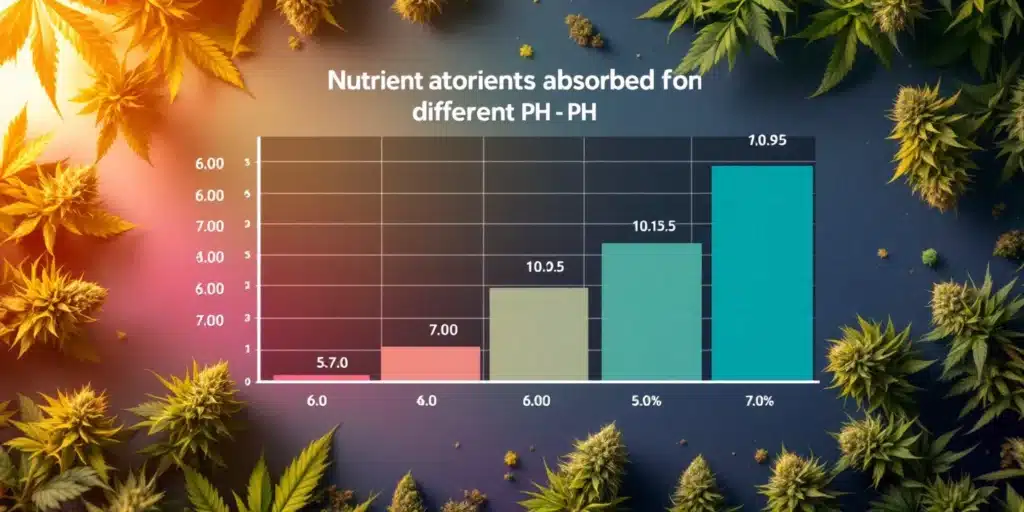
Consumer Perspectives on DEPS Weed
User Experiences and Reviews
Consumers who have experienced DEPS-grown cannabis often report a noticeable difference in quality and potency. The clean, robust flavors and high cannabinoid levels make DEPS weed a preferred choice for those seeking the best cannabis experience.
The Demand for DEPS Weed Cultivated Cannabis
The demand for DEPS-grown
cannabis is on the rise, driven by educated consumers who value quality, potency, and environmental sustainability. As awareness of DEPS’s benefits grows, more consumers are seeking out these premium products, signaling a shift in market preferences towards responsibly cultivated cannabis.
The Transformative Impact of DEPS on Cannabis Cultivation
The transformative impact of cannabis DEPS cultivation marks a significant leap forward, combining advanced hydroponic technology with sustainable practices to produce premium cannabis products. By marrying advanced hydroponic technologies with the growers’ desire for efficiency, quality, and sustainability, DEPS weed is setting a new standard for what can be achieved in cannabis production. Its ability to produce superior quality cannabis in a more environmentally friendly manner aligns with the evolving expectations of consumers and the industry’s broader push towards sustainable practices.
As the cannabis industry continues to grow and evolve, DEPS weed stands out as a testament to the innovative spirit of cannabis cultivators and the endless possibilities for improvement in cultivation techniques. With ongoing advancements in technology and a growing emphasis on sustainability, DEPS weed is poised to play a pivotal role in shaping the future of cannabis cultivation, offering a blueprint for producing high-quality, environmentally responsible cannabis products.
As we look to the future, the significance of DEPS in transforming cannabis cultivation cannot be overstated. Its role in promoting a more sustainable, efficient, and quality-focused approach to cannabis growth will likely continue to inspire innovations and improvements across the industry, ensuring that the cultivation of cannabis remains at the forefront of agricultural technology and environmental responsibility.
FAQs About DEPS Weed
What is DEPS weed and how does it differ from other cannabis?
DEPS weed refers to cannabis cultivated using the Deep Water Culture hydroponic system, setting it apart with faster growth rates, higher yields, and improved quality due to optimized nutrient and oxygen delivery to the roots.
How does DEPS cultivation improve the quality of cannabis?
DEPS enhances cannabis quality by allowing precise control over the growing environment, leading to better nutrient absorption, healthier plants, and a more potent cannabinoid profile.
Can anyone set up a DEPS cannabis system at home?
Yes, with the right equipment and some basic knowledge of hydroponic systems, anyone can set up a DEPS cannabis garden at home, making it a versatile option for both beginners and experienced growers.
What are the legal implications of growing cannabis with DEPS?
The legality of DEPS weed cultivation depends on local laws regarding cannabis growth. It’s essential to research and comply with all local regulations before setting up a DEPS system.
Are there specific strains that thrive under DEPS cultivation?
While many cannabis strains can be successfully grown with DEPS weed, those with robust root systems and fast growth rates, such as certain hybrids and indicas, often perform exceptionally well.
How do consumers perceive DEPS weed compared to traditionally grown cannabis?
Consumers typically perceive DEPS weed as superior in quality and potency due to its clean cultivation method and the enhanced flavors and effects it delivers.

